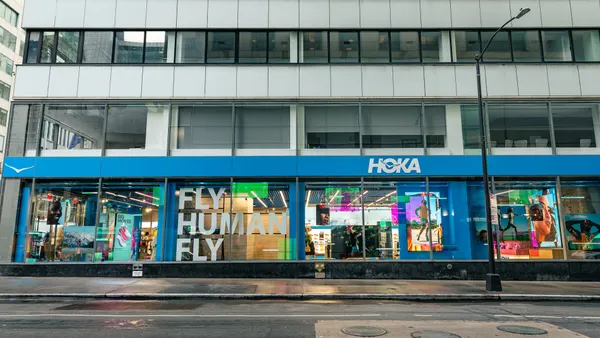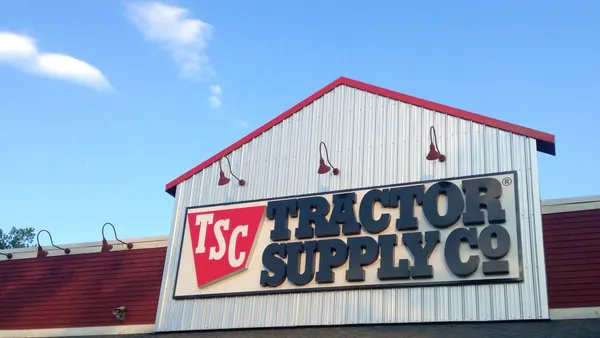While lumber deflation and recently announced tariffs impacted the two largest home improvement retailers in the United States, second quarter results remained relatively strong.
The Home Depot on Tuesday reported that net sales rose 1.2% to $30.8 billion, up from $30.5 billion in the year-ago quarter, according to a company press release. This was slightly behind FactSet's estimate of $31 billion. Net earnings were $3.48 billion, down 0.8% from $3.5 billion in the year-ago period. The decline was primarily due to the 52-week fiscal year compared to last year's 53-week fiscal year, according to GlobalData Retail Managing Director Neil Saunders. Company-wide comp sales rose 3% and U.S. comp sales were up 3.1%.
"Home improvement is an early indicator of economic distress and, from Home Depot's numbers, there is no sign that the consumer is in a tailspin," Saunders said in comments emailed to Retail Dive.
Home Depot remains home improvement consumers' top choice in part thanks to brand recognition, but also because of its investments both in store and online, Saunders said. "All of these are focused on making life easier for the shopper, whether they be a professional tradesperson or a novice home improver," he added. Home Depot's continued investments in its omnichannel offerings not only places it ahead of Lowe's in that aspect, but also makes it "the vanguard of the whole retail sector," Saunders said.
"There is much work to do in making Lowe's a first-choice destination for more home improvement consumers," he added. "This is especially the case online, where Home Depot is the first port of call for the vast majority of those undertaking DIY tasks, something which ultimately crimps Lowe's online growth numbers. Admittedly, bringing this about is not an easy task and Lowe's is likely never going to outpace Home Depot."
But Home Depot did lower its previously announced fiscal 2019 guidance, largely due to lumber price deflation and pressure from recently announced tariffs, CEO Craig Menear said on a call with analysts. The company now expects sales to grow by 2.3% compared to its previous expectation of a 3.3% increase, and comp sales to rise 4% compared to the earlier expectation for a 5% increase. Telsey Advisory Group also believes a softer housing market is to blame, according to a client note emailed to Retail Dive.
Meanwhile, Lowe's on Wednesday reported that net sales increased 0.5% to $21 billion from $20.9 billion in the year-ago quarter, according to a company press release. Company-wide comp sales increased 2.3%, while U.S. comp sales rose 3.2%. Lowe's also said it maintains its previously announced outlook, which TAG analysts noted as "a sigh of relief." The retailer also said it expects sales to increase 2% and comps to increase 3%.
"Lowe's put in a good performance and will be pleased that it managed to beat Home Depot — albeit very marginally — in terms of US comparables," Saunders said. "The results continue to indicate that the recovery program instituted by Marvin Ellison is gaining traction."
The company also reported that net earnings in the quarter were $1.7 billion compared to $1.5 billion in the year-ago period.
The addition of the Craftsman label helps Lowe's to better position itself against its larger rival, especially among its pro customers. Lowe's also announced in June it's opening a new tech center in Charlotte, North Carolina, with the hopes of creating up to 2,000 jobs. This came months before the retailer announced it would slash "thousands" of store-level positions, mainly affecting maintenance staff and workers who assemble retail products.
"While we believe that Lowe's still has a lot of work to do before it even starts to match Home Depot on authority, brand visibility and convenience, it is gradually putting its house in order which means the competitive environment is strengthening," Saunders said.














